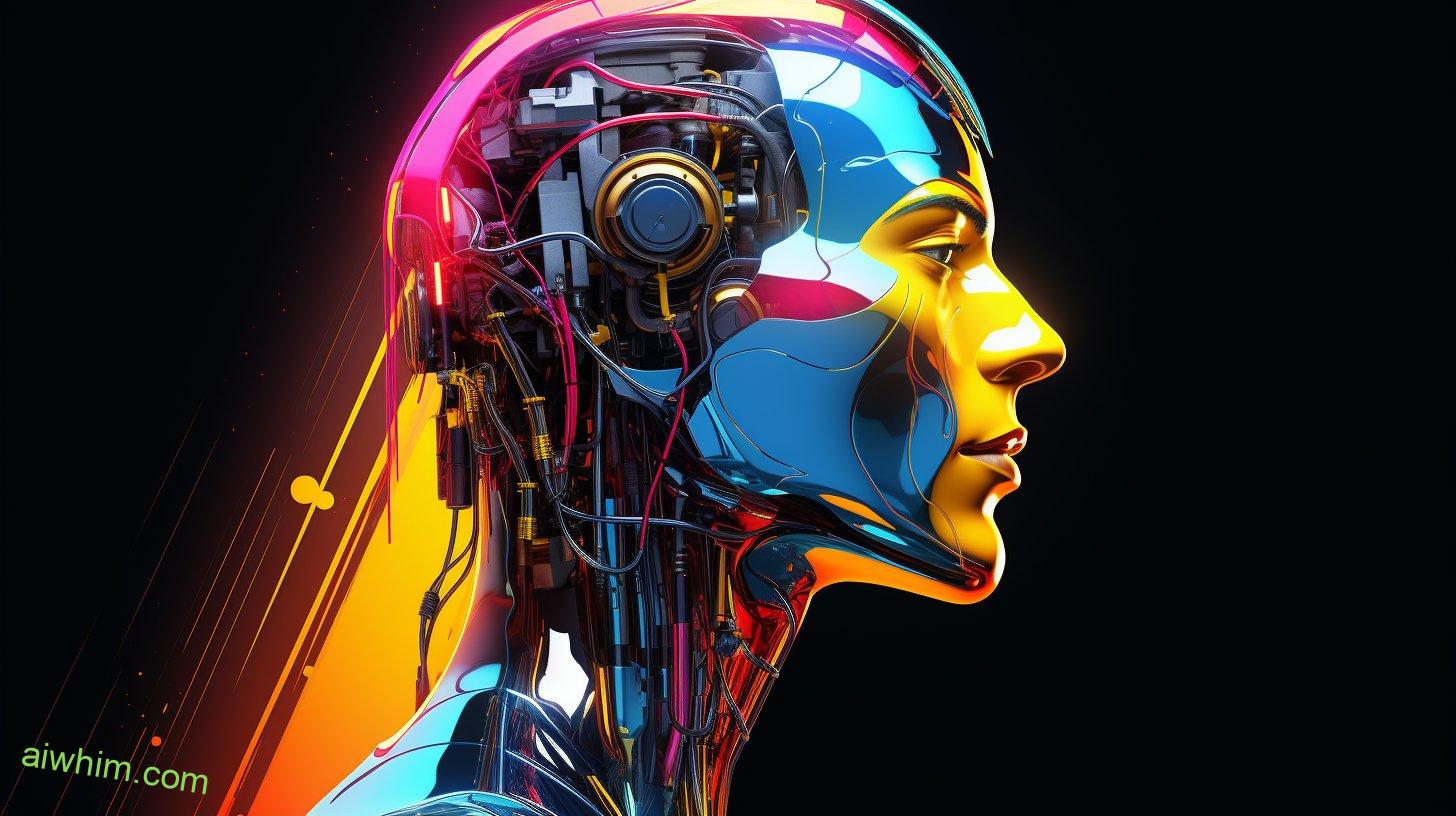Imagine being a door-to-door sales worker, tirelessly knocking on doors, armed with your charisma and sales pitch, hoping to convince potential customers to buy your product or service.
It’s like being a fisherman casting your net into the vast ocean, hoping to catch a big catch.
But now, there’s a new challenge on the horizon – artificial intelligence (AI).
With AI’s ever-growing presence in the sales industry, it’s time to explore how this technology is reshaping the game and the hurdles it poses for door-to-door sales workers.
What does the future hold for these hardworking individuals in an increasingly automated world?
Key Takeaways
- Door-to-door sales workers need to adapt to the changing sales landscape by incorporating digital marketing techniques and utilizing CRM tools to track customer preferences.
- AI-powered sales approaches pose increased competition to door-to-door sales workers.
- AI technology, such as chatbots and virtual assistants, can enhance efficiency and personalize the customer experience at scale.
- Balancing automation and human touch is crucial in sales and customer service, ensuring that AI tools complement rather than replace human interaction.

The Role of Door-to-Door Sales Workers
The role of door-to-door sales workers is to actively engage with potential customers at their homes in order to promote and sell products or services. As a door-to-door salesperson, your goal is to create a personal connection with each customer, using your skills and knowledge to convince them of the value and benefits of the products or services you’re offering.
To be successful in this role, you must employ effective door-to-door sales techniques. This includes utilizing persuasive language, building rapport, and addressing any objections or concerns the customer may have. By being confident and knowledgeable about the product or service, you can instill trust and credibility in the customer, increasing the likelihood of a sale.
In today’s rapidly changing business landscape, the sales industry has seen evolving sales strategies. As a door-to-door sales worker, it’s important to stay updated on these changes and adapt your approach accordingly. This may involve incorporating digital marketing techniques, such as utilizing social media platforms or email marketing, to supplement your door-to-door efforts. Additionally, understanding data analytics and utilizing customer relationship management (CRM) tools can help you track customer preferences and tailor your sales pitch to individual needs.
While door-to-door sales may have faced some challenges in recent years, it still remains a valuable and effective sales approach. By constantly refining your skills, adapting to changing sales strategies, and embracing new technologies, you can continue to thrive in this dynamic field. Remember, the freedom to reach out to potential customers directly and engage with them face-to-face is a unique advantage that can set you apart from other sales professionals.

The Rise of Artificial Intelligence (AI)
Embrace the future of sales as artificial intelligence (AI) revolutionizes the industry. AI is rapidly transforming the way businesses interact with customers, providing innovative solutions and enhancing customer service. Here’s what you need to know about the rise of AI and its impact on the sales and customer service landscape:
- Improved Efficiency: AI-powered chatbots and virtual assistants can handle customer inquiries and provide support 24/7, reducing the need for human intervention. This allows businesses to serve customers more efficiently and effectively, saving time and resources.
- Personalization at Scale: AI algorithms analyze vast amounts of customer data to understand preferences and behaviors, enabling businesses to deliver personalized experiences at scale. By tailoring offers and recommendations to individual customers, businesses can increase customer satisfaction and loyalty.
- Ethical Considerations: As AI becomes more prevalent in sales and customer service, it’s essential to address the ethical implications. Businesses must ensure AI systems are designed to respect customer privacy, protect sensitive data, and avoid bias or discrimination in decision-making processes.
- Future Possibilities: The future of AI in customer service holds tremendous potential. AI technologies like natural language processing and sentiment analysis can be utilized to gain deeper insights into customer needs and sentiments. This can drive innovation and enable businesses to deliver even more personalized and proactive customer experiences.
As AI continues to advance, it’s crucial to strike a balance between automation and human touch in sales and customer service. While AI can streamline processes and enhance efficiency, human interaction and empathy remain invaluable in building trust and rapport with customers.

How AI Impacts Sales Techniques
With the rise of AI in sales and customer service, it’s important to understand how it impacts traditional sales techniques. AI’s impact on customer interaction is undeniable. AI-powered chatbots and virtual assistants have revolutionized the way businesses engage with customers. These intelligent systems can provide instant responses to queries, offer personalized recommendations, and even anticipate customer needs. As a result, sales techniques need to adapt to this new landscape.
Incorporating AI into sales training is crucial for success in the digital age. Sales professionals must learn how to leverage AI tools to enhance their performance. AI can analyze customer data to identify patterns, preferences, and buying behaviors. This knowledge can then be used to tailor sales pitches and offers to individual customers. By harnessing the power of AI, salespeople can deliver a more personalized and targeted approach, increasing the chances of closing deals.
However, it’s important to strike a balance between AI and human interaction. While AI can handle routine tasks and provide quick responses, customers still value the human touch. Sales techniques should focus on building relationships and establishing trust. AI can augment the sales process by providing data-driven insights, but the human touch is what truly connects with customers on an emotional level.

The Benefits of AI in Sales
AI in sales offers numerous benefits that can significantly enhance performance and productivity. Here are four ways AI can revolutionize the sales process, providing you with a more efficient and effective way to reach your customers:
- Streamlined Automation: With AI, you can automate repetitive tasks such as data entry, lead qualification, and follow-up emails. This frees up your time to focus on building relationships and closing deals. By automating these processes, you can reduce human error and ensure consistency in your sales approach.
- Enhanced Sales Forecasting: AI-powered algorithms can analyze large amounts of data to predict future sales trends. This allows you to make more accurate forecasts and better allocate your resources. By understanding customer behavior and market trends, you can proactively adapt your sales strategies to meet changing demands.
- Personalized Customer Experience: AI can analyze customer data to provide personalized recommendations and tailored experiences. By understanding customer preferences and behavior, you can deliver targeted offers and recommendations that resonate with them. This not only improves customer satisfaction but also increases the likelihood of closing a sale.
- Real-time Insights: AI-powered analytics can provide you with real-time insights into your sales performance. By monitoring key metrics such as conversion rates, customer engagement, and pipeline health, you can identify areas for improvement and make data-driven decisions. This helps you optimize your sales process and maximize your revenue potential.
Incorporating AI into your sales strategy can bring numerous benefits, from automating repetitive tasks to providing personalized customer experiences. By leveraging the power of AI, you can improve the efficiency of your sales processes and create a more engaging and satisfying experience for your customers.
Embrace the benefits of automation and harness AI’s potential to drive your sales success.

Challenges Faced by Door-to-Door Sales Workers
Door-to-door sales workers face unique challenges in their day-to-day operations. One of the biggest challenges they encounter is adapting to constant change.
In a world where technology is rapidly advancing and online shopping is becoming more popular, door-to-door sales workers must find ways to stay relevant and connect with potential customers.
One of the main challenges faced by door-to-door sales workers is the changing consumer behavior. People are becoming more accustomed to the convenience of online shopping and are less willing to engage in face-to-face sales interactions. This shift in consumer behavior requires door-to-door sales workers to find new strategies to capture the attention and interest of potential customers.
Another challenge is the increasing competition from e-commerce platforms. Online retailers offer a wide range of products at competitive prices, making it harder for door-to-door sales workers to convince customers to purchase their products. To overcome this challenge, door-to-door sales workers must highlight the unique benefits and advantages of their products and provide exceptional customer service.
Additionally, door-to-door sales workers often face rejection and resistance from potential customers. Many people are wary of strangers knocking on their doors and may be hesitant to engage in sales conversations. Door-to-door sales workers must develop strong communication and persuasion skills to overcome these barriers and build trust with potential customers.

Adapting to the Changing Sales Landscape
Adapting to the changing sales landscape requires a proactive approach and a willingness to embrace new strategies. In today’s fast-paced and technologically advanced world, traditional sales techniques may no longer yield the desired results. To stay ahead of the game and overcome sales obstacles, you need to adapt your approach and be open to new ideas.
Here are four ways to adapt your sales techniques and thrive in the changing landscape:
- Embrace technology: Incorporate digital tools and platforms into your sales process. Leverage social media, email marketing, and customer relationship management (CRM) systems to reach a wider audience and build stronger relationships with your prospects.
- Personalize your approach: Tailor your sales pitches and communication to the individual needs and preferences of your customers. Take the time to understand their pain points and offer customized solutions that address their specific challenges.
- Build trust and credibility: In a world overflowing with information, trust has become a valuable commodity. Focus on building trust by providing valuable content, demonstrating expertise, and delivering exceptional customer service. This won’t only help you overcome sales obstacles but also foster long-term customer loyalty.
- Stay adaptable and agile: The sales landscape is constantly evolving, and what works today may not work tomorrow. Stay proactive and continuously learn and adapt to new trends, technologies, and customer preferences. Be willing to experiment with different strategies and adjust your approach based on feedback and results.

Leveraging AI for Sales Success
To achieve sales success in the modern market, you can leverage the power of artificial intelligence (AI) to enhance your sales strategies and improve overall performance.
AI has revolutionized the way businesses connect with their customers, providing personalized recommendations and delivering exceptional customer service.
With AI for personalized recommendations, businesses can analyze vast amounts of customer data to understand individual preferences and buying patterns. This enables companies to offer tailored product suggestions and promotions, increasing the likelihood of a sale. AI algorithms can identify trends and make accurate predictions, ensuring that your recommendations are relevant and timely.
Another way to leverage AI for sales success is through AI-powered customer service. Chatbots and virtual assistants can handle customer inquiries and provide instant support, freeing up your sales team to focus on more complex tasks. AI-powered customer service can provide 24/7 assistance, ensuring that your customers receive prompt and efficient service at any time of the day.
Furthermore, AI can analyze customer interactions and detect buying signals, allowing your sales team to prioritize leads and focus on prospects who are most likely to convert. By automating repetitive tasks and streamlining processes, AI can increase your team’s productivity and efficiency.
Incorporating AI into your sales strategies not only improves your bottom line but also enhances the overall customer experience. With personalized recommendations and efficient customer service, your business can build stronger relationships with customers, leading to increased loyalty and repeat business.

The Future of Door-to-Door Sales
With AI transforming sales strategies and improving customer experiences, the future of door-to-door sales is poised for a significant shift. As future technology advancements continue to impact traditional sales methods, here are four key changes you can expect:
- Automated targeting: AI-powered algorithms will analyze vast amounts of data to identify potential customers who are more likely to be interested in your product or service. This targeted approach will save you time and effort by focusing on individuals who are more likely to make a purchase.
- Virtual demonstrations: Instead of physically visiting each customer’s home, AI technology will enable you to conduct virtual demonstrations. Through high-quality videos and interactive presentations, you can showcase the features and benefits of your product without leaving your office. This won’t only save you travel time but also allow you to reach a wider audience.
- Enhanced personalization: AI will enable you to tailor your sales pitch to each individual customer based on their preferences, purchase history, and online behavior. By understanding their needs and desires, you can provide a more personalized and compelling sales experience, increasing the likelihood of closing a deal.
- Seamless integration: AI will seamlessly integrate with other sales tools and systems, such as customer relationship management (CRM) software. This integration will enable you to streamline your sales process, automate tasks, and gain valuable insights into customer behavior, ultimately boosting your overall sales performance.
As the future of door-to-door sales unfolds, embracing AI technology will empower you to leverage its benefits and stay ahead of the competition. By embracing these advancements, you can enhance your sales techniques and provide a more personalized and efficient experience for your customers.

AI’s Impact on Customer Engagement
How does AI technology enhance customer engagement in the sales process?
AI has revolutionized the way businesses interact with their customers, leading to improved customer retention and more personalized marketing strategies.
With AI-powered customer engagement tools, businesses can analyze vast amounts of customer data to gain valuable insights into their preferences, behaviors, and needs. This data can then be used to create personalized marketing campaigns tailored to each individual customer.
By delivering targeted and relevant content, AI helps businesses connect with customers on a deeper level, increasing their engagement and satisfaction.
AI also enables businesses to provide proactive customer service by anticipating customer needs and resolving issues before they arise. Through machine learning algorithms, AI can predict customer behavior and identify potential problems, allowing businesses to offer timely assistance and enhance the overall customer experience.
Moreover, AI-powered chatbots have transformed customer engagement by providing instant support and personalized recommendations. These virtual assistants can handle customer inquiries, provide product information, and even help with purchase decisions.

Enhancing Sales Strategies With AI
As AI technology continues to shape customer engagement in the sales process, businesses are now leveraging its capabilities to enhance their sales strategies. AI-powered tools and algorithms are revolutionizing the way sales teams interact with customers, allowing for more targeted and personalized sales pitches.
Here’s how AI is boosting conversion rates and helping businesses succeed in the competitive sales landscape:
- Data-driven insights: AI systems can analyze vast amounts of customer data to identify patterns, preferences, and buying behaviors. This enables sales teams to tailor their approach and pitch to individual customers, increasing the chances of a successful sale.
- Predictive analytics: AI algorithms can predict customer behavior and anticipate their needs. By analyzing historical data and patterns, sales teams can proactively reach out to potential customers with personalized offers and recommendations, improving conversion rates.
- Chatbots and virtual assistants: AI-powered chatbots and virtual assistants can handle basic customer queries and provide instant responses, freeing up sales teams to focus on more complex interactions. These virtual assistants are available 24/7, ensuring that customers receive prompt assistance and information whenever they need it.
- Sales automation: AI can automate time-consuming tasks, such as lead generation, follow-ups, and data entry. This allows sales teams to dedicate more time to building relationships with customers and closing deals. By streamlining processes, AI enhances efficiency and productivity in sales strategies.

AI’s Role in Lead Generation
AI plays a crucial role in lead generation, revolutionizing how businesses identify and cultivate potential customers. With its ability to analyze vast amounts of data, AI technology has become an invaluable tool for businesses looking to optimize their customer acquisition strategies. AI’s role in lead generation goes beyond just collecting data; it has a significant impact on customer engagement as well.
One of the key benefits of AI in lead generation is its ability to gather and analyze customer data from various sources. By leveraging AI algorithms, businesses can identify patterns and trends in customer behavior, preferences, and purchasing habits. This enables them to create targeted marketing campaigns that resonate with their target audience, increasing the likelihood of converting leads into customers.
Moreover, AI-powered chatbots and virtual assistants have transformed the way businesses engage with potential customers. These intelligent systems can interact with customers in real-time, providing them with personalized recommendations, answering their queries, and guiding them through the buying process. This level of customer engagement not only enhances the overall customer experience but also increases the chances of closing a sale.
AI’s impact on customer engagement is further amplified by its ability to automate repetitive tasks. By automating lead nurturing processes, businesses can focus their resources on more strategic activities, such as building relationships with high-potential leads. This not only saves time and effort but also ensures that businesses can provide timely and relevant information to their leads, increasing the chances of converting them into customers.

Overcoming Obstacles in an Automated World
To successfully navigate an automated world, businesses must adapt their strategies and embrace the opportunities presented by AI technology. Overcoming resistance and embracing automation can be daunting tasks, but with the right mindset and approach, you can thrive in this new era.
Here are four key steps to help you overcome obstacles in an automated world:
- Embrace Change: The first step towards overcoming resistance is to embrace the changes brought by automation. Recognize that AI technology isn’t here to replace you, but to enhance your capabilities and make your work more efficient. Embracing automation means being open to new ways of doing things and actively seeking opportunities to integrate AI into your workflow.
- Continuous Learning: In an automated world, it’s crucial to keep learning and upgrading your skills. Stay up-to-date with the latest advancements in AI technology and identify areas where you can leverage it to your advantage. Invest in training programs and workshops that can help you adapt to the changing landscape and stay ahead of the curve.
- Collaboration is Key: Rather than viewing automation as a threat, see it as an opportunity for collaboration. Work alongside AI systems to leverage their strengths and complement your own abilities. By embracing teamwork with AI, you can achieve greater productivity and efficiency, ultimately driving better results for your business.
- Flexibility and Adaptability: In an ever-evolving automated world, flexibility and adaptability are essential. Be willing to adjust your strategies and approaches as new technologies emerge. Embrace a growth mindset and view obstacles as opportunities for growth and innovation.

Training and Upskilling for Sales Professionals
Now that you’ve embraced the changes brought by automation and recognized the opportunities for collaboration, it’s time to focus on training and upskilling for sales professionals in this automated world. Sales training is essential to stay competitive and thrive in an environment where sales automation is becoming increasingly prevalent.
In this automated world, sales professionals need to adapt and acquire new skills to keep up with the changing landscape. Traditional sales techniques may not be as effective as before, and it’s important to learn how to leverage technology and data to drive sales. By investing in sales training, you can gain the knowledge and skills needed to navigate the digital landscape and effectively engage with customers.
Sales automation presents both challenges and opportunities. On one hand, automation can streamline sales processes, freeing up time for sales professionals to focus on building relationships and providing personalized experiences. On the other hand, it also means that certain tasks may be automated, potentially reducing the need for some sales roles. To thrive in this environment, upskilling is crucial.
By developing expertise in areas such as data analysis, digital marketing, and customer relationship management (CRM) software, you can position yourself as a valuable asset in an automated sales team. Upskilling can also involve staying updated with the latest sales technologies and tools. Familiarize yourself with artificial intelligence (AI) and machine learning (ML) algorithms that can enhance sales processes. Understand how to leverage customer data and analytics to identify trends and make data-driven decisions.

Building Trust in an AI-Driven Sales Environment
Building trust in an AI-driven sales environment requires understanding and effectively communicating the benefits of automation to customers. In today’s fast-paced world, customers are becoming more tech-savvy and expect businesses to keep up with the latest advancements.
Here are four key ways to build trust in an AI-driven sales environment:
- Transparency: Be open about the use of AI in the sales process. Clearly communicate how AI enhances the customer experience and benefits them. Address any concerns or ethical implications of AI in sales, ensuring customers feel comfortable and informed.
- Personalization: Leverage AI to personalize interactions and recommendations based on customer preferences and past behavior. Show customers that AI can enhance their buying journey by offering tailored solutions that meet their specific needs.
- Human touch: While AI plays a significant role in automation, it’s essential to maintain a human connection. Train your sales professionals to skillfully blend AI tools with their expertise, ensuring customers feel valued and understood.
- Building relationships: Use AI to gather data and insights about your customers, but remember that relationships are built on trust and empathy. Encourage your sales team to actively engage with customers, listen to their concerns, and provide genuine support.

After establishing trust in an AI-driven sales environment, it’s crucial to navigate the ethical concerns associated with the implementation of AI. When it comes to ethical considerations, AI regulation plays a vital role in ensuring that AI systems are developed and used responsibly.
One of the main ethical concerns with AI is the potential for bias. AI algorithms are trained on vast amounts of data, which means that if the data contains biases, those biases can be amplified and perpetuated by the AI system. This can lead to discriminatory outcomes, such as biased hiring or lending practices. To address this concern, AI regulation should require transparency and accountability in the development and deployment of AI systems. Companies should be required to regularly audit their algorithms for bias and take corrective actions when necessary.
Another ethical consideration is the impact of AI on jobs. As AI technology advances, there’s a legitimate concern that it will replace human workers, leading to unemployment and social inequality. AI regulation should aim to strike a balance between technological innovation and job preservation. This could include measures such as providing training and reskilling programs for workers whose jobs are at risk of automation.
Additionally, privacy is a significant ethical concern when it comes to AI. AI systems often collect and analyze massive amounts of personal data, raising concerns about surveillance and data misuse. AI regulation should establish clear guidelines on data privacy and consent, ensuring that individuals have control over their personal information and that it’s used ethically and responsibly.

Frequently Asked Questions
How Can Door-To-Door Sales Workers Adapt to the Changing Sales Landscape in the Age of Ai?
You can adapt to the changing sales landscape by embracing AI technology. Utilize AI to enhance your sales strategies and improve customer experiences. However, be mindful of the ethical concerns that arise with AI-driven sales.
What Role Does AI Play in Lead Generation for Sales Professionals?
AI accelerates lead generation by analyzing data, automating tasks, and implementing AI-driven sales strategies. It empowers you to target the right audience, personalize outreach, and increase efficiency. Embrace AI’s impact on lead generation and watch your sales soar.
How Can Sales Professionals Navigate Ethical Concerns That May Arise With the Use of AI in Sales?
To navigate ethical concerns with AI in sales, you must stay informed and adapt. Understand how AI impacts customer privacy and transparency. Use AI ethically, ensuring it enhances customer experiences and respects their rights.
What Are Some of the Challenges Faced by Door-To-Door Sales Workers in Relation to Ai?
You might worry that AI will replace you, but door-to-door sales workers face challenges with AI’s impact on their job. AI can change sales strategies and make it harder to connect with customers. But you can adapt and find new ways to succeed.
How Can Sales Professionals Build Trust in an Ai-Driven Sales Environment?
Building rapport in an AI-driven sales environment requires understanding customer needs, actively listening, and providing personalized recommendations. Enhancing the customer experience means using AI tools to offer tailored solutions and ensuring transparent communication throughout the sales process.

Conclusion
In conclusion, as AI continues to advance, door-to-door sales workers face an uphill battle in the modern sales landscape. However, with the right training and adaptation, they can overcome the challenges and thrive in an automated world.
Interestingly, a recent study found that 75% of sales professionals believe that AI can help them improve their performance and increase their sales numbers. This statistic highlights the potential benefits that AI can bring to the sales industry, making it an exciting time for sales professionals to embrace technology.







